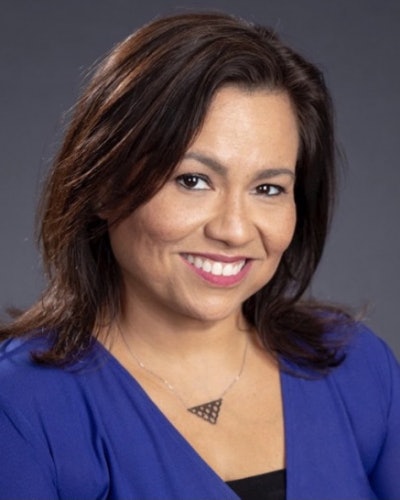In just two months, the pause on federal student loan repayment will come to an end. Many borrowers are not financially prepared to resume payments due to the lingering effects of the pandemic, particularly women, who disproportionately shoulder two thirds of the $1.7 trillion of federal student loan debt.
 Dr. Stella Flores, associate professor of higher education and public policy at The University of Texas at Austin.
Dr. Stella Flores, associate professor of higher education and public policy at The University of Texas at Austin.
The report concludes that, for economic equity, student debt should be cancelled across the board, $50,000 per borrower.
Sunny Glottmann, a researcher with CRL and co-author of the report, said that she and her fellow researchers wanted to understand how student loan balance impacted the finances and financial well-being of women as they “persist through an economic hardship.”
“We find that young people, especially young women of color, are now in a position where they are less able to build a life that has all the benefits of economic prosperity” said Glottmann. “Black and Latina women are working their tuchuses off to provide for their families and have no real promise of being able to get out from debt. And that is a really, really tough burden to bear.”
Dr. Stella Flores, an associate professor of higher education and public policy at The University of Texas at Austin, said that the results of this report should not come as a surprise due to the pre-existing racial and gender wealth gap in America.
“Owning a home and the transfer of wealth tends to pay for college and homes. For generations, Black and Latinx and Native Americans missed out on that opportunity to earn any wealth because of legal discrimination. It builds up,” said Flores. “The racial wealth gap is one of our biggest problems in this nation and an uncomfortable one. Certain groups had honors imposed on them because of race, that only whites and white men could earn the wealth that ultimately pays for education, housing, and health.”
Flores added that borrowers are often told their burden of debt is due to bad personal choices, as opposed to centuries of racial wealth and class gaps.
“It’s a compounding, cumulative force which really calls for more attention," said Flores.
 Katherine Welbeck, director of advocacy and civil rights counsel at the Student Borrower Protection Center.
Katherine Welbeck, director of advocacy and civil rights counsel at the Student Borrower Protection Center.
Women’s wages are less on average than a man’s earnings over time.
Katherine Welbeck, director of advocacy and civil rights counsel at the Student Borrower Protection Center, a nonprofit focused on alleviating student debt, said the gender wage gap speaks to the value society places on the work of women.
“It’s really a matter of equity and economic justice to fix [the loan crisis],” said Welbeck. “The gender pay gap, the costs of childcare, and so many other costs women bear, we have to put that into the ways that student debt disproportionately effects women.”
Women are more likely to engage in jobs that have high interpersonal contact, those most impacted by a pandemic that required social distancing. In February 2020, 77.4% of all jobs in education and healthcare were held by women, according to the Bureau of Labor Statistics. The majority of jobs lost during the pandemic were held by women, according to a 2021 report from the National Women’s Law Center.
Sabrina Calazans, director of borrower outreach at the Student Debt Crisis Center, a nonprofit working to end student debt, agreed with the report’s conclusion that student debt should be cancelled. Calazans actively liaisons with student borrowers, working to share their stories with those empowered to impact policy.
 Sabrina Calazans, director of borrower outreach at the Student Debt Crisis Center.
Sabrina Calazans, director of borrower outreach at the Student Debt Crisis Center.
Flores said that while loans have an important purpose in helping people climb the ladder of social mobility, a robust public policy debate on the widening of wealth inequities is needed.
“There has to be more innovative ways of cancelling loan debt for the nation. Can there be donors, or charitable contributions? It doesn’t just to have to be government.” said Flores. “If you think about it, $50,000, $40,000, $30,000 to a low-income person, that’s still insurmountable. If you were to forgive that, what you’re doing is freeing human capital to develop their own and future generations without the heavy burden—the bricks on their back—that is debt.”
Liann Herder can be reached at [email protected].
















